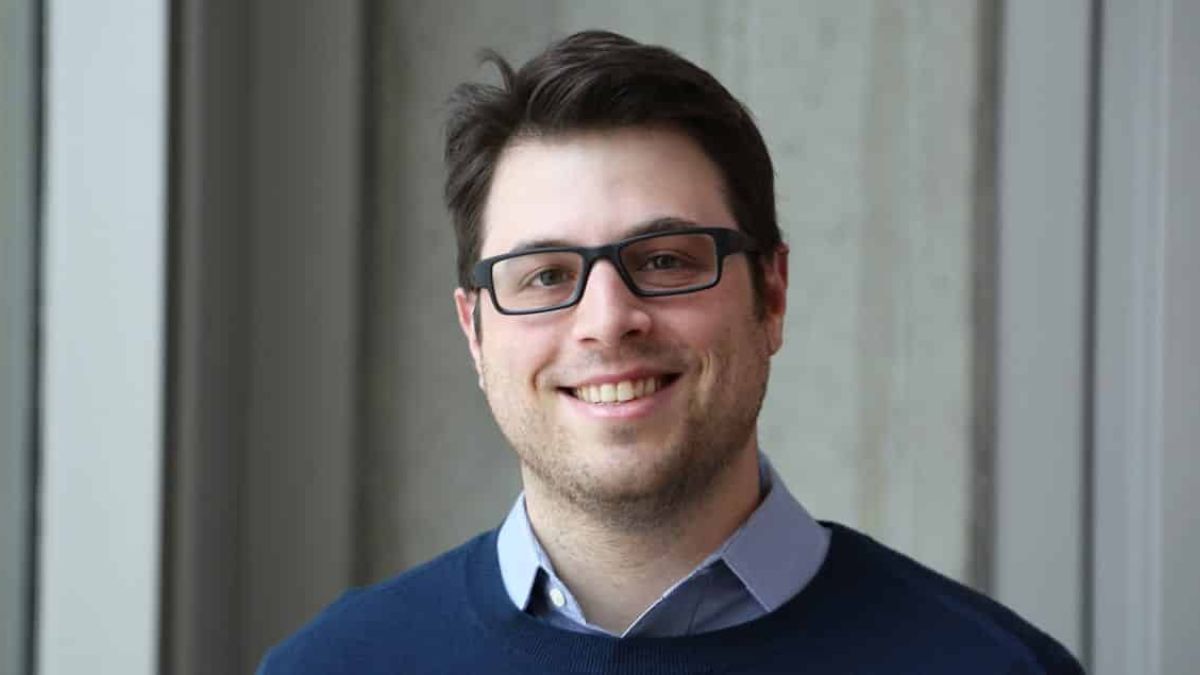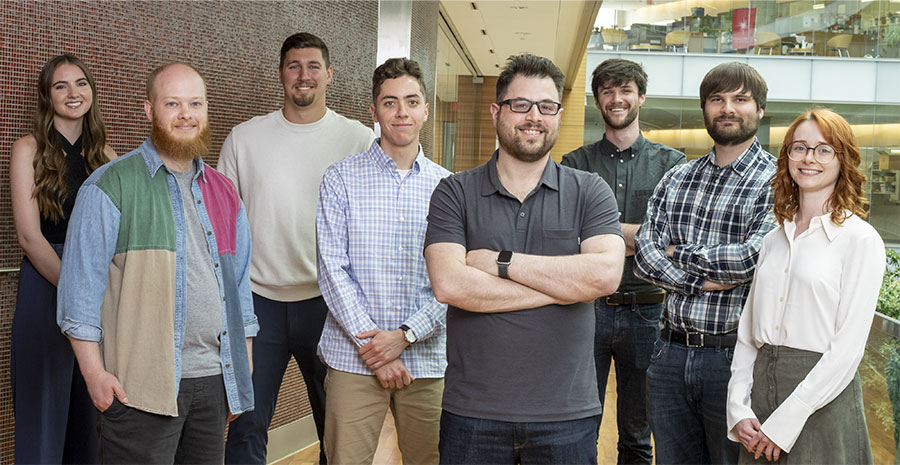Getting to Know Jason Cantor, PhD
Date Posted: Monday, February 03, 2025
Our guest speaker on February 27, 2025, will be Jason Cantor, Investigator for the Morgridge Institute for Research and Assistant Professor at the University of Wisconsin-Madison. Dr. Cantor conducted his PhD studies in Chemical Engineering at the University of Texas at Austin, where he gained key insights into optimizing asparaginase as a therapeutic for acute lymphoblastic leukemia (ALL). He then conducted his postdoctoral research in the David Sabatini lab, where he developed a media that mimics human serum conditions and uses it to uncover cancer cell dependencies that otherwise would have been observable. His ‘HPLC media’ has become a popular research reagent sold by Gibco. In his independent lab, he continues to utilize his engineering expertise to identify cancer cell dependencies using specialized media and chemostat culture conditions, uncovering unexpected metabolic dependencies and interactions between nutrients and drugs.
We asked Jason to answer the following scientific and non-scientific questions.
Did you make any resolutions for 2025?
I would say a mix of more closely adhering to “Rule # 32: enjoy the little things” and to reincorporate (outdoor) running at least a few times a week again.
What hidden talent do most people not know about you?
A few from my past: I played the violin for three years (before moving to a new school district that lacked a strings program) and the bass guitar for a few years. I hold a black belt in Tae Kwon Do. And I played competitive soccer and baseball through high school. More recently? I have a pretty good knack for bar trivia (not quite as interesting).
What are some memorable moments from your research training or as an independent PI?
There are so many. Beyond seeing a variety of key experiments work for the first time as a trainee, I empirically learned as a grad student what happens if you drop a stir bar into a freshly autoclaved flask of PEG before it has fully cooled. As a grad student, I also had the chance to see Bob Langer (one of the most influential chemical engineers ever) give a talk that in part described the amazing/ongoing body of work from his lab but also emphasized key messages related to the importance of both conviction and perseverance in one’s own ideas – these have stuck through the years and I have shared his TED talk with members of my group as well. As a PI, having the very first graduate student join the lab (who just defended a couple of months ago!), seeing trainees independently design and then execute experiments I’ve never even attempted, and of course, the first big grant.
Looking back on your path so far, what advice would you offer to trainees?
Probably more than anything else, follow your passion. From even the earliest days of undergraduate research, we are typically afforded a chance to identify a specific lab, a graduate program, and in many cases, even projects themselves. With this relatively unparalleled level of academic freedom and the amount of effort that will entail, it has never made sense to me why one would not identify and choose to pursue the science and projects that keep them brainstorming and excited to get after it. I feel that many characteristics of success can be derived simply from having that overarching passion: rigor, curiosity, creativity, persistence, optimism, etc.
Another big one to me is don’t fear the “new” or the unknown. I did undergrad research in a proteomics lab but then learned about protein engineering just before my senior year and thought it was the coolest thing I’d ever heard. So, I did my PhD in a protein engineering lab. Toward the end of grad school, I became interested in what were then the early days of a resurgence in cancer metabolism field, and so while it would’ve certainly been more straightforward (and likely far more expeditious) for me to postdoc in another protein engineering lab, I went to a cell biology lab to pursue that new interest. Fun fact, I had zero experience with mammalian cell culture before starting my postdoc. But I think, ultimately, embracing the “new” while applying the tools one has already developed, and in turn, paving those new roads, with bumps along the way, in one’s own training and toolkit is what leads to truly becoming interdisciplinary. And I think that once interesting questions to ask and/or problems to solve are identified, interdisciplinary approaches are often needed to best go after them.
What would you say are your best habits, science-related and non-science?
Science: Be meticulous and take the approach that “you miss 100% of the shots you don’t take." A quote by Michael Scott & Wayne Gretzky. A bad non-science habit is not being able to unplug!
What profession do you think you would have if you weren’t a scientist?
When I first started college, I had delusions that I could potentially dual major in chemical engineering and business. I always liked math and science, but not sure if market research analyst or financial adviser would’ve given the same satisfaction. If up to my parents, the answer would be doctor.
Favorites:
Movies: Shawshank Redemption, Inglorious Basterds, Dumb and Dumber
Bands: Way too many to list but a few are Pearl Jam, Arcade Fire, Beatles
TV: Arrested Development, Flight of the Conchords, Parks & Rec, Seinfeld/Curb. I was also a big fan of LOST when it first aired.

